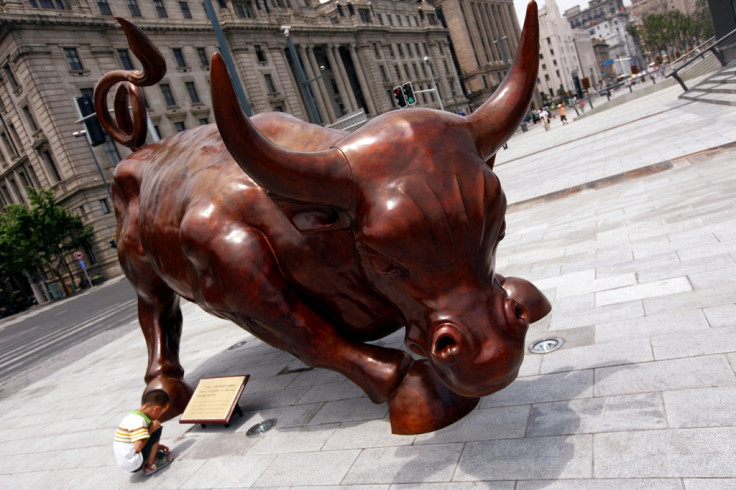China's Trust Assets Soar to $1.8tn Despite Default Risks

China's trust companies, the largest component of the country's so-called 'shadow banking' system, recorded a 46% surge in assets under management in 2013, underlining investor interest in products that pay more than bank deposits despite potential default risks.
Trust assets in the world's second-largest economy jumped to a record 10.9tn yuan ($1.8tn, £1.1tn, €1.32tn) in 2013, the China Trustee Association said in a statement on 13 February.
Industry-wide profit shot up 29% on an annual basis to 56.9bn yuan in 2013, according to the statement.
About 48% of the trust products were sold to provide finance for borrowers. A quarter of the assets found their way into the infrastructure sector at the end of 2013, an increase of 1.6 percentage points from the beginning of that year, while 10% went to the realty sector, according to the statement.
Trusts are the least likely part of the financial system to contain systemic risks because buyers are supposed to bear risks themselves, it said.
Asset quality is "quite sound and systemic risks are impossible" with 9.06bn yuan of reserves set aside, the association said. The association, a non-profit organisation, is overseen by the China Banking Regulatory Commission.
...regulators won't let the situation get out of hand.
About 5.3tn yuan of trust products would be due this year, up from 3.5tn yuan in 2013, Haitong Securities estimated in January, warning that firms could no longer take on all the risks linked to offering implicit guarantees.
Mike Werner, a Hong Kong-based analyst at Sanford C Bernstein said in a note to clients: "The lack of defaults over the past five years has further exacerbated China's debt and capital allocation problems. Credit continued to be channeled to unproductive and risky entities."
"The rapid expansion of trust assets over the past few years is unlikely to be sustained because the government is stepping up oversight of the sector," said Wei Tao, a Beijing-based analyst at China Securities.
"Systemic risk is manageable because the economic situation will remain under control and regulators won't let the situation get out of hand," Wei told Bloomberg.
"Even as non-performing financial assets increase amid the economic slowdown, so far only some individual trust products have run into problems and it's not a widespread phenomenon," the trustee association said in the statement.
Troubled Waters
Since 2012, over 20 trust products totaling 23.8bn yuan have faced payment issues.
A 973m-yuan product issued by Jilin Province Trust has missed four rounds of payments since November 2013 as the borrower is undergoing a restructuring, Shanghai Securities News reported on 12 February.
Jilin issued the product – Songhuajiang River No. 77 – in six tranches from November 2011 to March 2012 at a promised annual return of 9.8% to finance Shanxi Liansheng's mining projects, according to the report. China Construction Bank is the custodian of the product.
Investors in the China Credit Trust product recovered their principal after selling their rights to anonymous buyers days before the 31 January maturity. China Credit Trust sold the investment in February 2011 with a promised annual return of 9.5%-11%. Industrial & Commercial Bank of China (ICBC) distributed the product, designed to raise funds from wealthy investors for a coal mine that later collapsed.
China averted its first trust default in at least a decade in January as investors in a 3bn-yuan high-yield product, issued by China Credit Trust, were rescued days before it matured.
Since 2012, more than 20 trust products totaling 23.8bn yuan have faced payment issues, according to UBS. About half of these cases are still in legal process, UBS's Hong Kong-based economist Wang Tao wrote in a 27 January note.
About 20bn yuan of trust products suffered repayment difficulties in 2012, accounting for 0.27% of the industry's assets at that time.
Aided by guarantees on investments, trusts have surpassed insurance to become China's biggest financial segment after banks. Their assets under management have soared more than fourfold since the beginning of 2010.
© Copyright IBTimes 2025. All rights reserved.






















